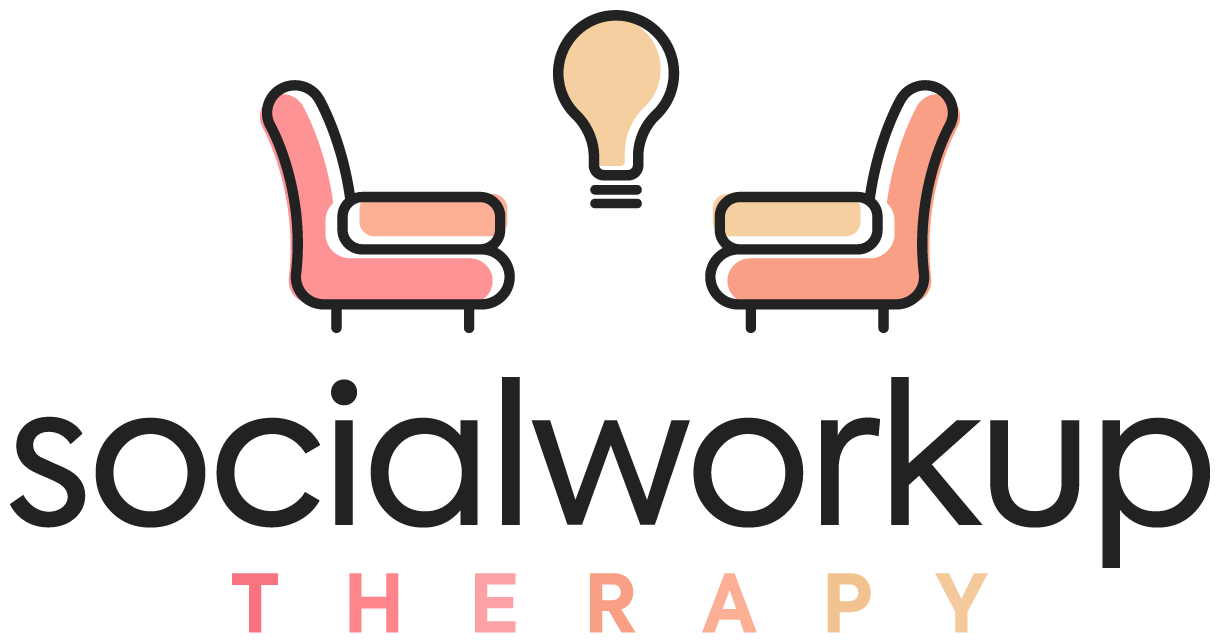Do Social Workers Make Good Therapists?
Do social workers make good therapists?
In short - oh yes! What do you look for in a therapist? Likely someone who is a good listener, who doesn’t push you to an end goal without you, someone who genuinely sees the many layers of who you are, and who helps you identify your opportunities as well as your strengths.
These are the guiding principles of the social work profession, which, I believe, naturally make clinical social workers excellent therapists.
Now I want to clarify, all mental health professionals with qualified licenses to provide therapy have potential to be incredibly impactful - no profession is better than the other. Before the 1950s, only psychiatrists provided psychotherapy (Bolton et all, 2022) and to this day, we sometimes forget that there are many other mental health providers who aptly provide these services. All professionals deserve their spotlight to better understand who they are and what they provide and right now, it’s time for social workers!
The mission of the social work profession is to enhance human well-being and help meet the basic human needs of all people, with particular attention to the needs and empowerment of people who are vulnerable, oppressed, and living in poverty (NASW, 2024). Social workers are educated and trained to view situations and solutions on multiple tiers. They are also expected to respect the dignity and worth of ALL people. Doesn’t it already feel warm and fuzzy in here?
Therapists are mental health professionals who support clients through a range of challenges.Rather than solely sitting with the individual and having them talk until they feel better, therapists apply key concepts and insights to guide the client towards confronting current challenges and expanding their capacity for emotional distress in the future.
So, what makes social workers good therapists?
The relationship is viewed as a partnership: Rather than telling you what to do, clinical social workers help you identify where your decisions are based and help you align solutions with your values (teach a man to fish rather than give one!) A clinical social worker will help you to empower yourself by respecting your own process throughout the journey. Trust is built and the therapist-client relationship is designed to serve as a part of the healing, too
A social justice lens is continually applied: Social workers pursue social change efforts by promoting the connection to the needs of all, especially those who have limited access. In therapy, there is an additional layer that ensures you will have access to the information, services, and resources you need to reach your goals.
They view challenges and solutions on multiple levels: There are systems that play a role in our lives on different levels - personal, family, community, and society. With knowledge of the interplay of these systems, we have the ability to examine issues and explore solutions from multiple angles.
Respect what makes you you: Every individual has a unique combination of their upbringing, experiences, values, family systems, and cultural and ethnic diversity that makes them who they are. Social workers hold ethical standards to respect the dignity and worth of every individual, ensuring you will be supported and valued for who you are.
It’s important to find a therapist who makes you feel unfiltered and trusting of the process. It’s recommended to make multiple consultation calls until you find the therapist that seems right for you. You can always switch therapists if you’ve already started and feel they are just not right for you, too. The process is for YOU, not the other way around. Want to learn more about how to find a therapist for the first time? Check out this recent blog post.
Want to schedule a consultation call with socialworkup therapy? Click here.

